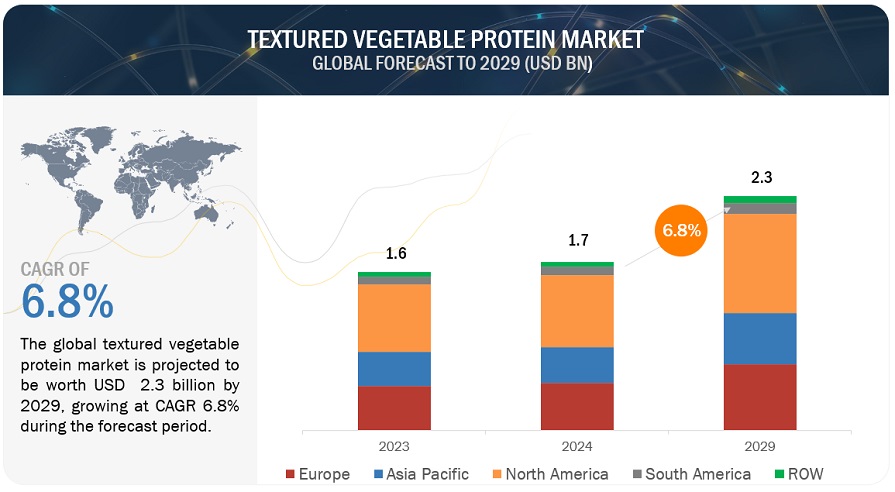The Textured Vegetable Protein Market is estimated to be valued at USD 1.1 billion in 2020 and is projected to reach USD 1.5 billion by 2025, recording a CAGR of 6.2%, in terms of value. The growing demand for meat alternatives, as well as the increase in health awareness among consumers, are propelling the demand for textured vegetable protein.
With the advancement of new technologies and innovative experiments in the food and beverage sector, the usage of textured vegetable protein has been dominant in the North American market, due to rise in vegan and flexitarian population, whereas the Asia Pacific region is growing fastest owing to new technologies and increase in the export of food and beverages.

Textured vegetable protein obtained from various sources such as soy, wheat, and pea has been adaptive among the food manufacturers, as it poses as a meat alternative with functional and nutritional characteristics. Also, it has witnessed high rates of adoption among consumers, as it replicates the characteristics of meat products, such as sausages, burger patties, nuggets, and crumbles, with a similar texture and flavor. Meat alternatives contain protein from plants and are formulated to providing an option for non-meat consumers.
The consumer inclination toward meat alternatives can mitigate animal-sourced food to a huge percentage. Meat alternative manufacturers, such as Beyond Meat (US) and Impossible Foods (US), have witnessed a surge in sales of meat alternatives, due to a shortage of beef and pork during the COVID-19 pandemic. Beyond Meat (US) reported its first-quarter net revenue spike of 141 % to more than USD 97 million in 2020, compared to the previous year USD 40 million in 2019.
Meat alternatives manufactured using textured vegetable protein are primarily obtained from plant-based sources. They offer functional benefits to the consumers, as consumption of meat alternatives may avoid the cancer risks of red meat. Texture and flavor have been the significant specifications needed to bolster the rising demand for meat alternatives among the consumers.
Key players are ADM (US), Cargill (US), CHS (US), Roquette Freres (France), DuPont (US), Wilmar International (Singapore), The Scoular Company (US), Puris Foods (US), VestKorn (Norway), MGP Ingredients (US), Beneo GmbH (Germany), Shandong Yuxin Bio-Tech (China), FoodChem International (China), Shandong Wonderful Industrial Group (China), Axiom Foods (US), AGT Food & Ingredients (Canada), Sun NutraFoods (India), Crown Soya Protein Group (China), La Troja (Spain), and Hung Yang Foods (Taiwan).

